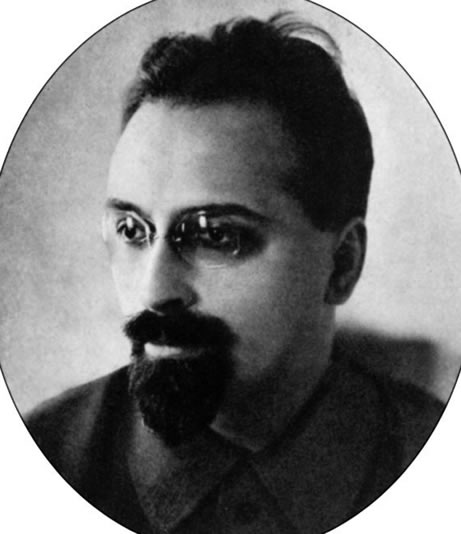 |
| Leo Karakhan |
Immediately after the October Revolution in 1917 the Soviet government of Russia had focused its efforts on instigating revolutions in Europe, but with little success. After establishing the Third International in March 1919 in Moscow, one of whose divisions was in charge of promoting communist revolutions in Asia, China became a prime target of the world communist movement.
Leo Karakhan (1889–1937) was assistant foreign affairs commissar of the Soviet government. On July 25, 1919, he issued a declaration (which came to be known in retrospect as the first Karakhan Declaration) that offered to renounce the unequal treaties that the czarist government had forced on China and further payments by China of indemnity that resulted from the Boxer Rebellion of 1900.
This declaration sought to capitalize on widespread public anger among the Chinese about China's diplomatic defeat at the Paris Peace Conference earlier that year, blaming it on the arrogance of the Western powers and Japan. However, due to a breakdown of communications, the text of the declaration did not reach China until March 1920. Some Chinese intellectuals saw this declaration as a herald of good relations with the Soviet Union.
 |
 |
But it had no immediate effect because Great Britain, France, the United States, and Japan were hostile to the Soviets, and under their influence, China continued to recognize and support the defunct Russian provisional government. Additionally, the Chinese Eastern Railway had, since the Communist Revolution in Russia, been under the joint control of Britain, the United States, Japan, and China.
In September 1920, Karakhan made a second declaration, in which the Soviet government repeated its offers of the previous year, except that it would now negotiate joint control of the Chinese Eastern Railway. China withdrew recognition from the provisional government in September 1920. In 1921 the two governments began negotiations.
Several Soviet representatives came to China between 1921 and 1923 but failed to reach agreement, the stumbling block being control of the railway and the status of Mongolia. In July 1923, Karakhan was appointed chief Soviet negotiator to China; in May 1924, a Sino-Soviet Treaty was signed.
 |
| Chinese eastern railway |
It was based on equality: The Soviet Union renounced extraterritorial rights in China, its concessions in several Chinese cities, and its share of the Boxer indemnity, but it retained control of the Chinese Eastern Railway. Mongolia had already become a Soviet satellite state and was not mentioned in the treaty.
From the first Karakhan Declaration, when the weak Soviet government offered to return the privileges its predecessor had obtained, to the Sino-Soviet Treaty of 1924, Soviet foreign policy toward China had hardened. This is because by 1924 the civil war had ended in Russia, and the Soviet government was in unchallenged control. It thus did not need to conciliate China. Leo Karakhan was executed by Stalin in the purge of 1937.